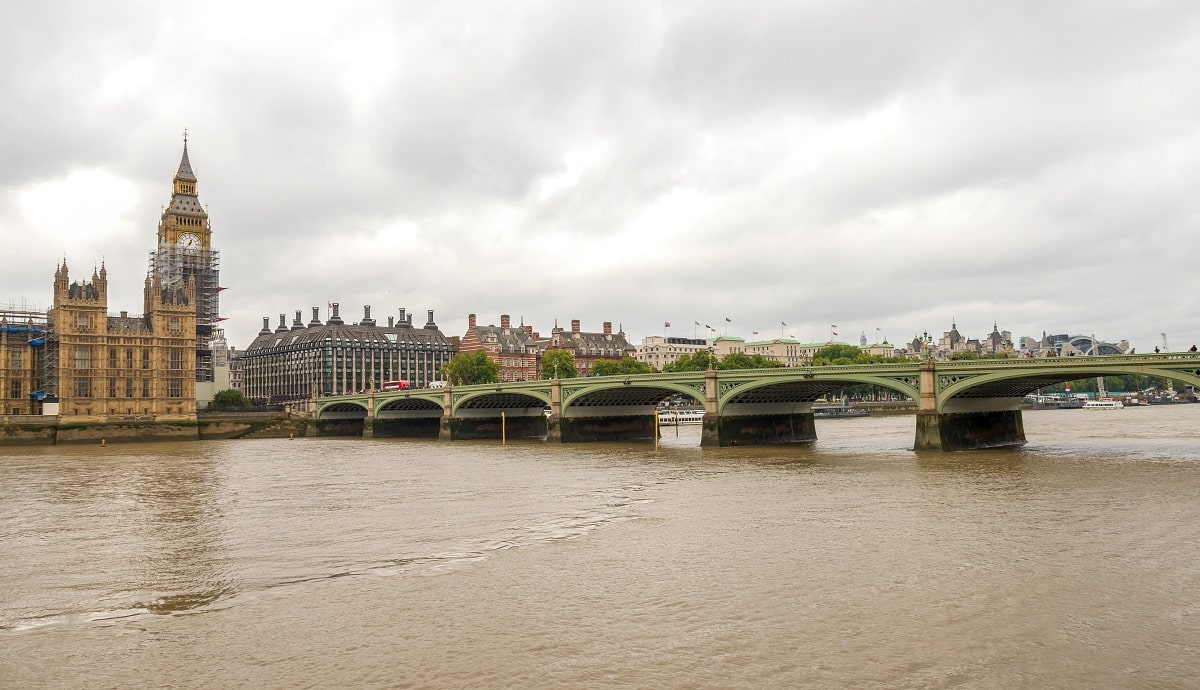The newest dire findings of the Rivers Trust’s latest report reveal an alarming pollution crisis plaguing British and Irish rivers, prompting urgent calls for action to safeguard these vital ecosystems. Here’s the full story.
Ecological Crisis
In a shocking new report, the dire state of rivers across Britain and Ireland has been laid bare. The Rivers Trust’s latest State of Our Rivers report paints a grim picture of the pollution levels in waterways across the UK and Ireland.
The report reveals alarming pollution levels, with none of the waterways in England or Northern Ireland are classified as being in good overall health. According to the report, various sources of pollution are contributing to the severe deterioration of river health across the nations.
Untreated Sewage
Treated and, more shockingly, untreated sewage discharge from the water industry has emerged as the primary suspect, accounting for a disturbingly large portion of river pollution in England.
Agricultural runoff laden with chemicals and urban runoff from transportation also play significant roles, exacerbating the problem further. Chemical and ecological tests conducted per the EU-derived water framework directive reveal the disturbing extent of the damage.
Not one of England’s rivers met the criteria for good chemical health, with elevated levels of toxic substances found beyond safe levels in every river tested.
15% Pass Rate
Only 15% of rivers passed the ecological health assessments, showcasing significant disruptions to most rivers’ biodiversity.
Mark Lloyd, the chief executive of the Rivers Trust, stated, “The State of Our Rivers report is a huge passion project for us, as it’s so important to ensure that science and evidence are at the heart of conversations about how to improve our rivers.”
He continued: “However, it’s also much more than that, as it puts the data in the hands of the public so that they can join us in calling for the change that our environment so desperately needs.”
EU Monitoring Standards
The report also raises concerns about the government’s intention to diversify from EU monitoring standards for river quality post-Brexit. This decision threatens to undermine efforts to address pollution effectively and ensure the long-term health of rivers.
Despite the government’s commitment to environmental stewardship, their divergence from established standards poses a significant challenge to ongoing conservation efforts.
One of the most alarming aspects highlighted in the report is the prevalence of persistent chemical pollutants in freshwater habitats. Substances like perfluorooctanesulfonic acid (PFOS), banned over 15 years ago, continue contaminating rivers at levels significantly exceeding safety thresholds.
Ecological Disaster
This ongoing ecological disaster only underscores the need for robust regulatory measures and proactive intervention to mitigate the worst aspects of chemical pollution in rivers.
However, the government has clarified that, as the EU’s water framework directive no longer applies, it does not need to publish any reports on river quality until 2025.
Perhaps because of the government’s lackluster attitude to environmental protection, the report also identifies a concerning decline in river sampling by the Environment Agency, leading to a lack of comprehensive data on river health.
This lack of essential data further hampers efforts by organizations like The River’s Trust to fully understand the scale of the pollution problem.
By Mistake or Design
As the scale of the problem cannot be understood, either by mistake or by design, this further hampers the ability of the government to implement targeted solutions to tackle the problem.
While the overall outlook for rivers in England and Northern Ireland remains bleak, there are some small glimmers of hope in other regions.
A Better Picture in Wales and Scotland
Wales and Scotland have seen modest improvements in river conditions, although Afonydd Cymru, the Welsh branch of the River’s Trust, has raised concerns about the methods used to sample river health in the country.
Despite these concerns, 44% of rivers in Wales had reached a good overall status level. The Scottish Environmental Protection Agency found that 57.2% of rivers were now at good overall status levels in Scotland.
Meanwhile, rivers in Ireland are faring slightly better, with over 50% achieving excellent or high ecological status.
Proactive Conservation
These changes implemented by devolved governments and the Irish government’s, which is still part of the EU, river monitoring and protections underscore the importance of proactive conservation measures to protect the health of the nation’s rivers.
The State of Our Rivers report’s shocking conclusions serve as a stark reminder of the urgent need to address pollution and safeguard the health of British and Irish rivers.
By heeding the calls for action outlined in the report and implementing evidence-based policies, politicians and citizens across the British Isles can work towards restoring these vital ecosystems for future generations before it is too late.
More Articles Like This…
Broken Britain: 12 Reasons Behind the UK’s Decline
Say the Unsayable: 10 Occasions When Farage Spoke His Mind About Britain
The post Flooded With Chemicals: Not One of England’s Rivers Classed as ‘Good’ According to New Report first appeared on Edge Media.
Featured Image Credit: Shutterstock / anastas_styles.
Grant Gallacher is a seasoned writer with expertise in politics and impactful daily news. His work, deeply rooted in addressing issues that resonate with a wide audience, showcases an unwavering commitment to bringing forth the stories that matter. He is also known for satirical writing and stand up comedy.

